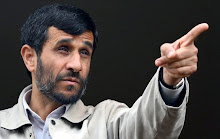The Gift by Li-Young Lee
Eastern poetry tends to be more overtly sentimental than Western poetry, and you can see an Eastern influence in The Gift—the poem is immediately and unabashedly lovely and nostalgic. I find it refreshing.
One interesting stylistic note: notice how the first, third and fourth lines of the poem are in iambic pentameter, and then how Lee doesn’t come close to repeating the meter again. I’m not sure why he does this. The rhythm does help to lull you into the poem, I guess. Poets will often write with the ghost of an iambic pentameter, but will rarely show it and then stray so far from it.
The Gift
To pull the metal splinter from my palm
my father recited a story in a low voice.
I watched his lovely face and not the blade.
Before the story ended, he’d removed
the iron sliver I thought I’d die from.
I can’t remember the tale,
but hear his voice still, a well
of dark water, a prayer.
And I recall his hands,
two measures of tenderness
he laid against my face,
the flames of discipline
he raised above my head.
Had you entered that afternoon
you would have thought you saw a man
planting something in a boy’s palm,
a silver tear, a tiny flame.
Had you followed that boy
you would have arrived here,
where I bend over my wife’s right hand.
Look how I shave her thumbnail down
so carefully she feels no pain.
Watch as I lift the splinter out.
I was seven when my father
took my hand like this,
and I did not hold that shard
between my fingers and think,
Metal that will bury me,
christen it Little Assassin,
Ore Going Deep for My Heart.
And I did not lift up my wound and cry,
Death visited here!
I did what a child does
when he’s given something to keep.
I kissed my father.
 Li-Young Lee was born in 1957 in Jakarta, Indonesia, of Chinese parents. His father, who was a personal physician to Mao Zedong while in China, relocated his family to Indonesia, where he helped found Gamaliel University. In 1959 the Lee family fled the country to escape anti-Chinese sentiment and after a five-year trek through Hong Kong, Macau, and Japan, they settled in the United States in 1964.
Li-Young Lee was born in 1957 in Jakarta, Indonesia, of Chinese parents. His father, who was a personal physician to Mao Zedong while in China, relocated his family to Indonesia, where he helped found Gamaliel University. In 1959 the Lee family fled the country to escape anti-Chinese sentiment and after a five-year trek through Hong Kong, Macau, and Japan, they settled in the United States in 1964.
One interesting stylistic note: notice how the first, third and fourth lines of the poem are in iambic pentameter, and then how Lee doesn’t come close to repeating the meter again. I’m not sure why he does this. The rhythm does help to lull you into the poem, I guess. Poets will often write with the ghost of an iambic pentameter, but will rarely show it and then stray so far from it.
The Gift
To pull the metal splinter from my palm
my father recited a story in a low voice.
I watched his lovely face and not the blade.
Before the story ended, he’d removed
the iron sliver I thought I’d die from.
I can’t remember the tale,
but hear his voice still, a well
of dark water, a prayer.
And I recall his hands,
two measures of tenderness
he laid against my face,
the flames of discipline
he raised above my head.
Had you entered that afternoon
you would have thought you saw a man
planting something in a boy’s palm,
a silver tear, a tiny flame.
Had you followed that boy
you would have arrived here,
where I bend over my wife’s right hand.
Look how I shave her thumbnail down
so carefully she feels no pain.
Watch as I lift the splinter out.
I was seven when my father
took my hand like this,
and I did not hold that shard
between my fingers and think,
Metal that will bury me,
christen it Little Assassin,
Ore Going Deep for My Heart.
And I did not lift up my wound and cry,
Death visited here!
I did what a child does
when he’s given something to keep.
I kissed my father.
 Li-Young Lee was born in 1957 in Jakarta, Indonesia, of Chinese parents. His father, who was a personal physician to Mao Zedong while in China, relocated his family to Indonesia, where he helped found Gamaliel University. In 1959 the Lee family fled the country to escape anti-Chinese sentiment and after a five-year trek through Hong Kong, Macau, and Japan, they settled in the United States in 1964.
Li-Young Lee was born in 1957 in Jakarta, Indonesia, of Chinese parents. His father, who was a personal physician to Mao Zedong while in China, relocated his family to Indonesia, where he helped found Gamaliel University. In 1959 the Lee family fled the country to escape anti-Chinese sentiment and after a five-year trek through Hong Kong, Macau, and Japan, they settled in the United States in 1964.

1 Comments:
There is a compelling sense of seeking in his work, and also a profound ability to render the unresolved nature of human affairs in all their complex beauty. We are never told what to think of the boy or his father. Instead, Lee focuses his energy on a tender, subtle rendering of the moment. Sublime!
Post a Comment
<< Home